The Promise of Xenotransplantation
By Jayme Locke, MD, MPH, Joel M. Topf, MD, FACP - Last Updated: April 17, 2025Jayme Locke, MD, MPH, is an adjunct professor of surgery at NYU Langone Health and vice president of medical development for xenotransplantation at United Therapeutics. She spoke with Nephrology Times editorial board member Joel Topf, MD, at the National Kidney Foundation Spring Clinical Meetings 2025 in Boston, Massachusetts, in April, where she received the Excellence in Kidney Transplantation Award.
The conversation took place as news broke that the pig kidney transplanted into patient Towana Looney had failed and been removed.
Dr. Topf: Joel Topf here with Nephrology Times. Thanks for joining us. We have Jayme Locke here, who is the world’s greatest transplant surgeon. That’s the award, or no?
Dr. Locke: Well, thank you very much. It’s Excellence in Transplantation. [laughs]
Dr. Topf: Same difference, same difference. That’s awesome. And, it’s kind of a sad day because Towana Looney had her kidney explanted today, and that was kind of our longest-lasting xenotransplant. Any insight that you have on that or thoughts on the starts and stops with this technology?
Dr. Locke: Well, first of all, I think Towana Looney is an amazing person. She was my patient, actually.
Dr. Topf: I did not realize this. Great. Tell me more.
Dr. Locke: I’ve known Towana for many, many years. She’s an absolutely extraordinary person. I think, to borrow Towana’s words, I think from her perspective, this may be a bit of a stumbling block, but she still sees this as a huge success, not just for her, but for the field of science, and I think [she] is really grateful for the opportunity. I know she was able to take a couple of vacations with family and really enjoy being dialysis free. I think she’s taught us a lot, and we have a lot to learn, but I think the field is just skyrocketing. I think it’s here to stay, and I think xenotransplantation has the potential to revolutionize the field and be able to offer the promise of transplant to many, many patients.
Dr. Topf: I will tell you, there’s almost nothing in the entire field of nephrology that I get more questions about from my patients than xeno. People are super excited about it. All of my patients are following it. They’re really engaged about that. And what I don’t have a feel for as a clinician because of the question—you know what the question is—when? Right? What do you think? Let’s put the marker down at 5 years. How many xenotransplants do you think we’ll be doing yearly in 5 years?
Dr. Locke: That’s a great question. I’m always a glass half full person, so I’ll give you my optimistic view. I mean, I would love to say that we would not only be doing those in 5 years but have enough of a supply at that point to be doing [them] in the thousands.
Dr. Topf: In the thousands in 5 years. Oh, I love that story.
Dr. Locke: And hopefully be able to kind of multiply from there, if you will. I think it’s just really, really exciting, and hopefully, I think it’s going to be very complementary to allotransplantation and really help fill that gap that allotransplantation hasn’t been able to fill.
Dr. Topf: Again, I think that’s an entirely glass half full story, but I do wonder, how does the big ask look when there’s the potential of a xenotransplant? How do you ask your cousin or your kid to donate a kidney when they’re like, “What about Wilbur over there?”
Dr. Locke: That’s a great question, and I do think that’s a really important question because at this point, we’re still going to need allotransplantation, including living donors. When you look at kidney disease in the United States alone, there’s somewhere between 35 and 37 million Americans that live with chronic kidney disease, as you know. And of those at any given time, there’s somewhere between 500,000 and 800,000 that meet the definition of kidney failure, many of whom are on dialysis. Yet we waitlist only about 90,000 a year, and we only perform about 26,000 or so kidney transplants. That’s a huge gap, and even with xeno coming online, we’re still going to need those 26,000 transplants from human organs, and that includes individuals who are able to donate as living donors as well as upon their death.
Dr. Topf: I think we probably, right now, should talk about an important conflict of interest. And I don’t even want to call it conflict—conflict sounds wrong—but you took a job at United Therapeutics.
Dr. Locke: I did. So, in disclosure, I’m now the vice president for medical development for xenotransplantation at United Therapeutics. I started on April 1 of this year, so I’m brand new. All of this work in xeno certainly predated that start.
Dr. Topf: But you’ve been involved in xeno for years.
Dr. Locke: Gosh, probably since 2016, 2017, yes. But in an academic capacity.
Dr. Topf: I don’t know what vice president of—what was…
Dr. Locke: Medical development for xenotransplant.
Dr. Topf: What do you actually do there? In the week that you’ve been there? [laughs]
Dr. Locke: One of my many roles is to join an already very spectacular team, but to really help the team with the upcoming clinical trial.
Dr. Topf: Do we know what that’s going to look like? I know the FDA gave approval
at the beginning of the year or something.
Dr. Locke: It’s actually listed on clinicaltrials.gov. Folks can go there and check out all the details of that.
Dr. Topf: But just kind of rough it in. What does it look like?
Dr. Locke: We’re going to start with enrolling 6 patients. They’ll be spread out over a period of time so that we make sure that we can learn from each transplant as we go, which I think is really important. You’ll see a transplant done, and it’ll be a period of about 12 weeks before we progress to the next transplant. Then based on those results, of course like any other development of a product, we’ll analyze those results, and then decisions will be made about moving on to the next phase.
Dr. Topf: The phase 1 trial sounds super exciting. How is it going to be different than the xenotransplants that we’ve seen so far?
Dr. Locke: That’s a great question. I think, number 1, it’s going to be in the setting of an actual clinical trial, right? There are going to be very defined end points, both primary and secondary. It will really allow us to critically evaluate safety and efficacy like you do with any other product. But it also is going to—in terms of criteria for enrollment—it’s going to be very clear who those individuals are, with particular attention to similar things that we look at when we’re evaluating patients to be waitlisted at a transplant center for kidney transplant, some of those same sort of…
Dr. Topf: Recognizable patients to me.
Dr. Locke: Absolutely. Because we want people to achieve a benefit from this. I think it’s all about hope. Sometimes we take that for granted, those of us who aren’t suffering from this kind of a disease. I don’t know about you, but when I talk to my patients, that’s what it’s really about. The miracle of transplant, in many ways, is that hope for a future that they otherwise didn’t know that they would have. To be able to contribute to that as a transplant surgeon, being able to perform transplants has been an absolute privilege of my life. Now to be able to help hopefully see xeno across the finish line and help more patients like Towana is really exciting.
Dr. Topf: Probably the most depressing moment when I round the dialysis unit is when patients show me their letter that they were denied a transplant. Because it’s the extinguishing of hope. It’s that loss of, they put so much energy into “I just need to do this dialysis until I get the transplant,” and when that is taken away from them, it’s horrible, right?
Dr. Locke: It really is. When you think about transplantation and you think about the success rates that we’ve had with it, it’s a cure in that once you get out past a certain number of days from your transplant, the survival benefit with a transplant over dialysis is there. We all know that; it’s why we want all of our patients to have it.
Imagine if we had something that worked that well for cancer, and then all of a sudden, I said, “Well, I’ve got this great therapy and I can cure your cancer, but sorry, there’s not enough to go around.” That’s essentially what we have in transplantation. That is why the concept of these alternative organ sources to meet this need [is so exciting]—because we want to be able to see patients in clinic and be able to offer a lifesaving therapy like this to everyone and to get to patients sooner, so patients are healthy enough to be able to achieve this, to not have these long waits. That’s really what the promise of xeno is, right?
Dr. Topf: Essentially what we’re doing is translating what is a shortage, and we’re saying it’s an eligibility issue. And it’s not. A lot more patients would actually be eligible if there wasn’t a shortage of organs. That is a dream that I would love for you to materialize. Manifest that for all of us!
Dr. Locke: I think we all would. That’s really the hope, but at the end of the day, it really is all about the patients. They are our pioneers in every walk of medicine. Patients are those extraordinary individuals that, for many of us, have been our living classrooms where we’ve really learned the art and science of medicine. They are the individuals where we get our next great big ideas from. They are the brave pioneers who are gracious enough and courageous enough to give us the privilege of being able to study those ideas. And they are our partners. That’s why you and I do what we do.
I think you started by saying this is a little bit of a sad day. I’m a glass half full [person], like I think Miss Looney is as well, and while it’s not the outcome that any of us were hoping for, in many ways it is opening the door for an incredibly powerful future, and Miss Looney will certainly be a part of that history, having helped us get there. Her legacy will be all the people that she’s going to have helped because of what she did.
Dr. Topf: Thanks a lot. We appreciate your talking to us.
Dr. Locke: Thank you for having me.
Dr. Topf: Absolutely. Congratulations.
Dr. Locke: Thank you.

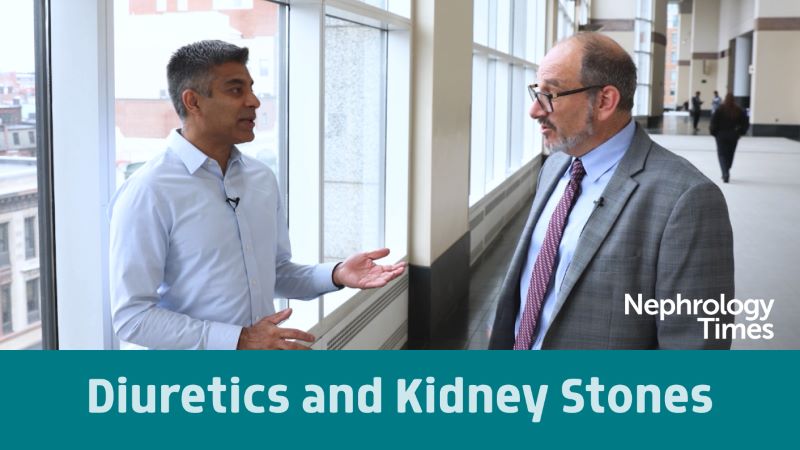
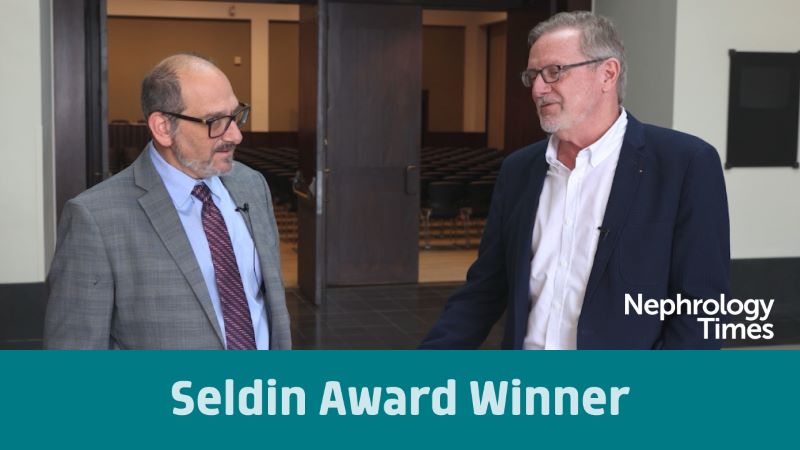
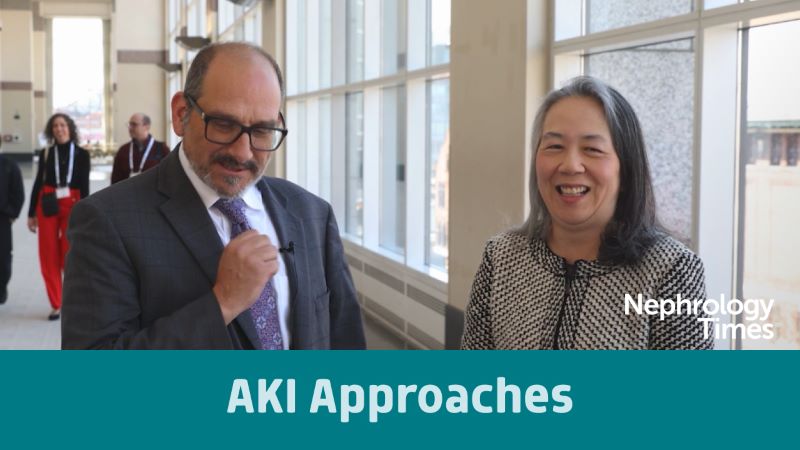
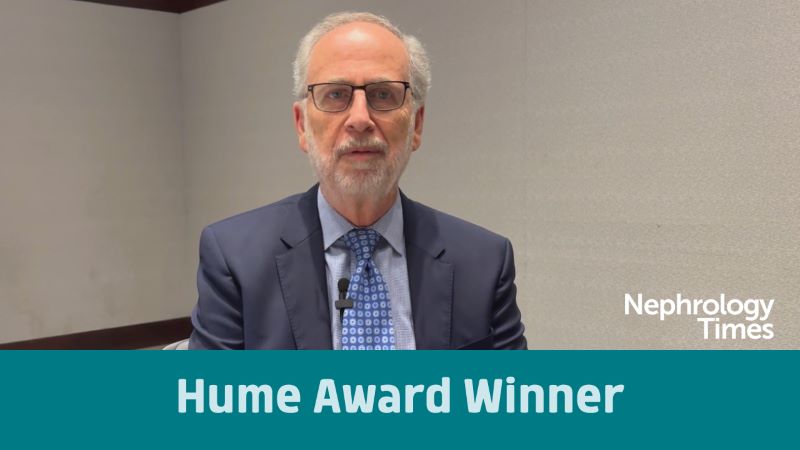
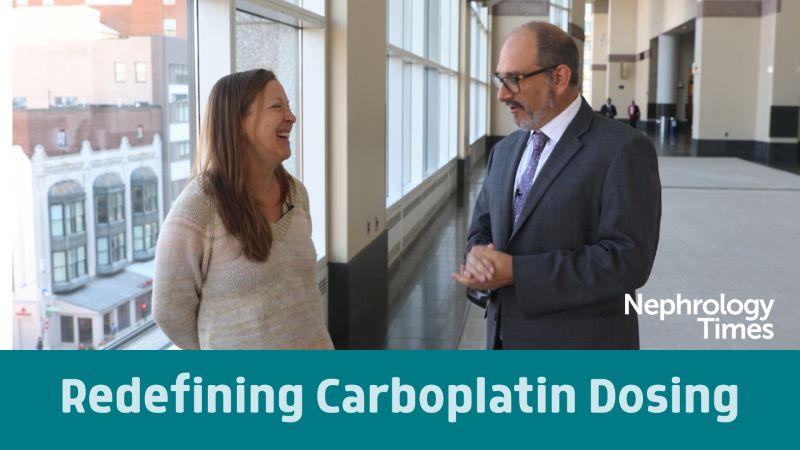

 © 2025 Mashup Media, LLC, a Formedics Property. All Rights Reserved.
© 2025 Mashup Media, LLC, a Formedics Property. All Rights Reserved.